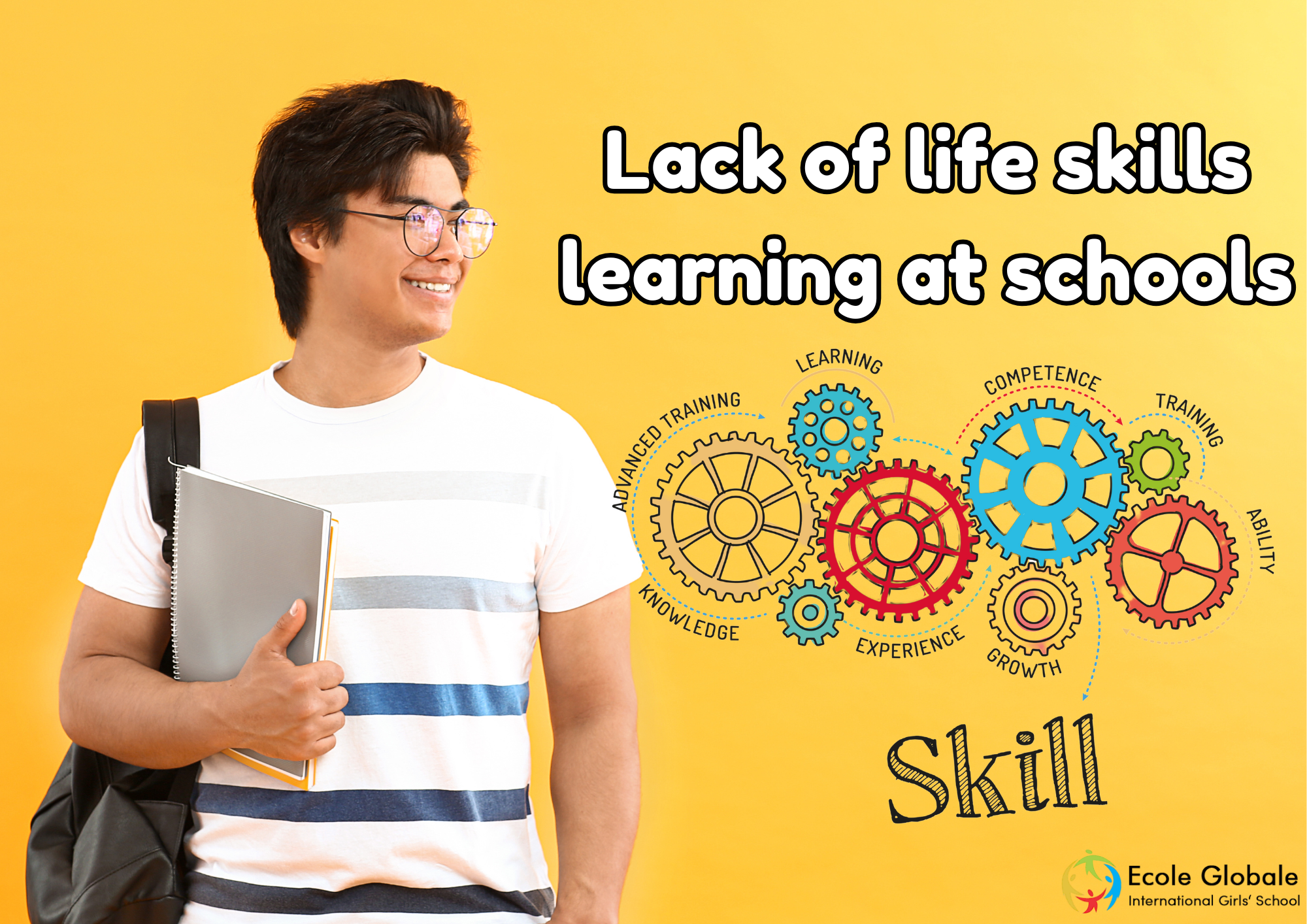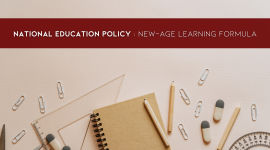In today’s rapidly evolving world, academic knowledge alone is not enough to prepare students for the challenges of life.
Which include critical thinking, communication, problem-solving, decision-making, and emotional intelligence, are essential for personal and professional success.
However, many schools still fall short in adequately teaching these skills, leaving a significant gap in students’ overall development.
What is Life Skills Learning?

Life skills learning at schools refers to the education and development of skills that help individuals navigate everyday challenges, interact with others effectively, and make informed decisions.
These skills are not only relevant in personal life but are increasingly crucial in the workplace.It include areas such as time management, stress management, self-awareness, interpersonal relationships, financial literacy, and adaptability.
Teaching this at school helps students build resilience and equips them with tools to thrive in a complex and dynamic world.
The Importance of Life Skills in Today’s World
In a fast-changing global environment, academic knowledge alone does not prepare students for the real world.
The lack of life skills learning at schools has been a growing concern, especially as students face challenges such as mental health issues, social pressure, and an increasingly competitive job market.
Life skills are essential because they:
- Improve Personal Development: Skills learning helps students improve self-awareness and emotional regulation, enabling them to understand and control their emotions better.
- Enhance Communication: Effective communication is a critical skill in both personal and professional settings. Teaching students how to express themselves clearly and listen actively can lead to healthier relationships.
- Foster Critical Thinking and Problem Solving: Students need to think critically and solve problems in various aspects of their lives. These skills are vital for academic achievement and success in the workforce.
- Promote Social and Emotional Skills: Building positive relationships and resolving conflicts peacefully are key skills that help students interact effectively with peers and adults.
The Current Gap in Life Skills Learning at Schools

Despite the growing recognition of the importance of life skills learning at schools, many schools still struggle to incorporate these skills into their curricula.
The primary focus continues to be on academics and preparing students for standardized tests. As a result, skills are often overlooked or taught in a fragmented, unstructured manner.
Some reasons for this gap include:
- Curriculum Overload: The traditional curriculum is already packed with academic subjects, leaving little room for skills education. As a result, they often neglected or only addressed superficially in extracurricular activities or one-off programs.
- Lack of Trained Educators: Many teachers are not equipped with the knowledge or resources to teach skills effectively. This education requires specialized training, which is often not part of teacher professional development programs.
- Limited Resources: Schools, particularly those in rural or underserved areas, may lack the necessary resources, including time, trained personnel, and materials, to offer effective skills education.
- Cultural and Societal Factors: In some cultures, skills education is seen as secondary to academic learning. There may be a lack of understanding about the value of life skill, with a greater emphasis placed on achieving high academic scores.
The Benefits of Integrating Life Skills Learning at Schools

Integrating life skills learning at schools has several long-term benefits for students.
By focusing on holistic development, schools can better prepare students for real-world challenges. Some of the key benefits include:
- Empowered Students: Skills education empowers students to make informed decisions, handle stress, communicate effectively, and adapt to different situations. These skills foster greater independence and confidence.
- Improved Academic Performance: Students who possess strong skills such as time management and critical thinking are more likely to excel academically. These skills enable them to approach their studies in a more organized and focused manner.
- Better Mental Health: Life skill such as emotional regulation and stress management can help students cope with mental health challenges. By teaching coping strategies, schools can help students manage the pressures they face during their academic journey.
- Preparation for the Future: In today’s job market, employers value employees who possess strong interpersonal skills, problem-solving abilities, and adaptability. By incorporating life skill learning into the curriculum, schools can better prepare students for the workforce.
Steps to Incorporate Life Skills Learning at Schools

To bridge the gap in life skills education, schools need to take proactive steps to integrate life skills into their curricula. Here are some ways schools can address this issue:
-
Curriculum Integration: Life skills should be integrated into existing subjects, such as language arts, social studies, and science, rather than being treated as an isolated subject. This would allow students to see the practical application of life skills in everyday life.
-
Teacher Training: Teachers should be trained in life skills education so that they can incorporate these teachings into their classes. Professional development programs focused on life skills can equip teachers with the tools to effectively teach these essential skills.
-
Creating Safe Spaces: Schools should create safe spaces where students can engage in open discussions about their emotions, relationships, and other aspects of their lives. Group activities, workshops, and counseling services can provide students with the support they need.
-
Extracurricular Programs: In addition to academics, schools should offer extracurricular activities such as leadership programs, volunteering opportunities, and sports that promote teamwork, communication, and emotional intelligence.
-
Parental Involvement: Schools can also encourage parents to teach life skills at home by hosting workshops or informational sessions. Collaboration between schools and parents can create a holistic approach to life skills development.
Conclusion
While academic knowledge is undoubtedly important, life skills learning at schools is essential to preparing students for the challenges of adulthood.
The lack of life skills education in many schools creates a significant gap in students’ overall development, leaving them unprepared for the complexities of the modern world.
By integrating life skills into the curriculum, providing teacher training, and creating supportive environments, schools can empower students to thrive both academically and personally.
Life skills education is not just an addition to the curriculum but a fundamental part of shaping future generations who are capable of handling the challenges and opportunities of an ever-changing world.
For any queries related to parenting, schooling, or any student-related tips, click here to check out our latest blogs









